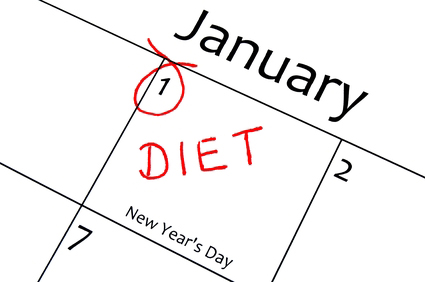Another Diet Pill Bites the Dust
Author: Dr. Stephen Chaney
 The New Year is upon us, and everyone is looking for an easy way to lose weight.
The New Year is upon us, and everyone is looking for an easy way to lose weight.
Let’s face it. Losing weight is difficult. You have to give up your favorite foods. You’re often hungry and cranky. You have to change your lifestyle. And did I mention that you might need to put on your running shoes and go for a run or, heaven forbid, actually go to the gym.
It’s so much easier to take one of those diet pills. You know the ones I’m talking about. They promise to give you energy – burn the fat – suppress your appetite. All you need to do is take one of those little pills every day and, voila, you’re ready to try on that bikini.
It all sounds great. But are those diet pills really safe? A few weeks ago I shared with you that the experts have warned against the use of fat burning sports supplements. They consider them unsafe. Now it’s time to turn our attention to the fat burning diet pills.
Are Diet Pills Safe?
Lots of diet pills have come and gone over the years. Some have just faded away because they didn’t work. They didn’t live up to their claims. Others have been withdrawn from the market by regulatory agencies because they were dangerous or actually killed people- Ma huang and Fen-Phen come to mind, but there have been many others.
And now it looks like yet another diet pill, one called Dexaprine, may have the same fate.
The ads make it sound like a wonder pill.
- “With one little change…you could feel energy all day long”
- “With one little change…you can suppress your insatiable appetite”
- “You can try another unsuccessful diet without it, but when you’re ready…the ultimate fat burner will be waiting for you with open arms.”
The Dark Side
And yet, like most diet pills, it also has a dark side. Side effects include insomnia, sweating, heart palpitations and high blood pressure. As if that weren’t bad enough, the supplement manufacturer that makes Dexaprine conducts no clinical studies on their products, so they have no idea whether their product is safe or not.
And, it appears that it may not be safe. Dutch authorities banned Dexaprine in August after reports of 11 adverse reactions associated with Dexaprine use in Holland since March of this year, including hospitalizations and severe heart problems. British authorizes followed suit the next day and issued a warning against use of “fat burner” supplements in general. It’s probably just a matter of time before other governments step in and ban Dexaprine as well.
And, it’s not just Dexaprine. New diet pills hit the market almost every day. And, they all have those same “magical” claims.
The Only Safe Drug Is A New Drug
It reminds me of the wise advice that a physician colleague of mine gave to the medical students near the start of their first year. He told them “The only safe drug is a new drug”. He went on to say that he didn’t mean that new drugs were safer than the older drugs. It’s just that we don’t know all of their bad side effects until they’ve been on the market for a few years.
Diets pills are no different. They burst on the market full of promise. But, once they’ve been on the market for a year or two, reports of their bad side effects start to appear. We start to learn just how dangerous they are. And, one by one, they all bite the dust.
The Bottom Line
1) There is no “Tooth Fairy”. There is no “Easter Bunny”. And, there is no magical pill that will SAFELY melt the pounds away. You simply don’t want to risk the diet pill solution – no matter how easy it sounds. No magical, “quick fix” diet solution is worth risking permanent heart damage – or worse.
2) If you are fortunate to lose weight safely using one of those diet pills, you won’t have learned anything. You won’t have changed anything. The weight will come right back on.
3) Permanent weight loss requires a permanent change to your lifestyle. Some of those changes will be difficult at first, but once those lifestyle changes become habits – once they become part of who you are, they will become easy.
You can achieve both the weight and the health you want!
These statements have not been evaluated by the Food and Drug Administration. This information is not intended to diagnose, treat, cure or prevent any disease.
